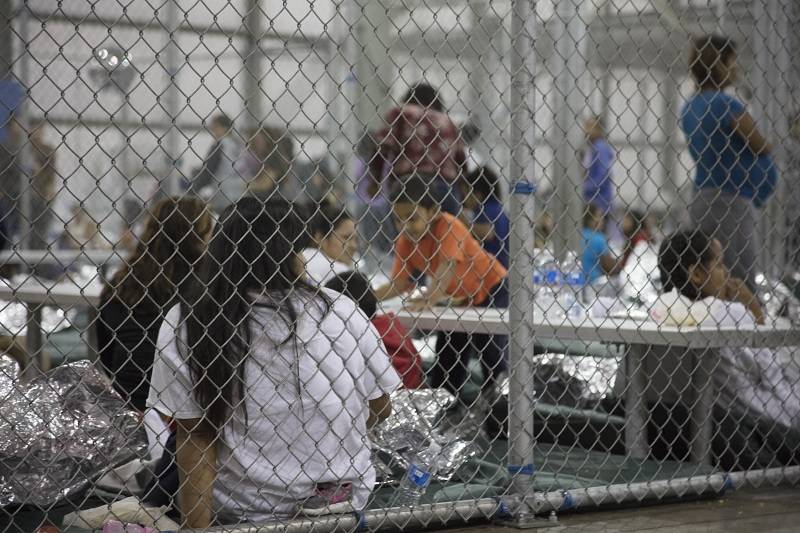Immigration Detention: Trump To Limit Legal Challenges?

Table of Contents
Restricting Access to Courts
The Trump administration implemented several policies aimed at limiting access to legal representation for detained immigrants, significantly impacting their ability to challenge their detention. This restricted access to justice fundamentally undermined the principle of due process. These efforts included:
-
Reduction in funding for legal aid organizations: Cuts to federal funding drastically reduced the capacity of non-profit organizations providing pro bono legal services to detained immigrants. This left many without access to legal counsel, severely hindering their ability to navigate complex immigration procedures and mount effective legal challenges.
-
Increased limitations on asylum seekers' ability to access legal counsel: Administrative changes made it more difficult for asylum seekers, a particularly vulnerable population, to secure legal representation, further exacerbating existing challenges within the already overburdened immigration system.
-
Changes in court procedures that made it more difficult to obtain release from detention: Alterations to bond hearings and other court procedures made it harder for detainees to demonstrate their eligibility for release, leading to prolonged detention even when there were valid reasons for release.
-
The impact of these policies on the fairness and efficiency of immigration courts: The reduced access to legal representation contributed to a significant increase in the immigration court backlog, creating further delays and impacting the overall fairness and efficiency of the system. Many cases were decided without adequate legal representation for the detainee, leading to potentially unjust outcomes.
Changes to Immigration Court Procedures
The administration also implemented changes within immigration court procedures designed to expedite the process, often at the expense of due process for detained immigrants. These changes included:
-
Increased use of expedited removal procedures: Expedited removal bypassed many of the standard due process protections afforded to immigrants facing deportation, leading to concerns about fairness and accuracy. This process often resulted in deportation without a full hearing.
-
Stricter standards for establishing "credible fear" of persecution: Raising the bar for establishing credible fear made it significantly harder for asylum seekers to demonstrate a well-founded fear of persecution in their home countries, resulting in increased deportations.
-
Shorter deadlines for filing appeals: Reducing the time available to file appeals limited the ability of individuals to challenge adverse decisions, potentially leading to irreversible consequences.
-
The effect of these changes on the number of successful asylum claims: These procedural changes contributed to a dramatic decrease in the number of successful asylum claims, raising serious concerns about the integrity and fairness of the asylum process.
The Impact on Asylum Seekers and Other Vulnerable Groups
The policies implemented disproportionately affected vulnerable groups, including asylum seekers, refugees, and unaccompanied minors. The consequences included:
-
Increased instances of prolonged detention without access to legal counsel: Many individuals, especially those from marginalized communities, experienced extended periods of detention without adequate legal representation, leading to significant hardships.
-
Concerns about human rights violations within detention facilities: Reports of inhumane conditions and human rights abuses within immigration detention facilities increased, raising serious ethical and legal concerns about the treatment of detained immigrants.
-
The impact on the mental health and well-being of detained immigrants: Prolonged detention, often coupled with limited access to legal aid and inadequate living conditions, significantly negatively impacted the mental health and overall well-being of detainees.
-
Analysis of the policies' compliance with international law and human rights standards: The administration's policies faced considerable scrutiny regarding their compliance with international law and human rights standards, with numerous human rights organizations condemning the practices as violations of fundamental human rights.
Legal Challenges to the Administration's Policies
The administration's immigration detention policies faced numerous legal challenges in federal courts and, in some cases, reached the Supreme Court. These challenges frequently cited:
-
Significant legal cases challenging the legality of detention policies: Numerous lawsuits were filed, arguing that the policies violated the due process rights of immigrants, as guaranteed under the U.S. Constitution and international law.
-
Key arguments used in legal challenges (e.g., due process violations, violation of international human rights law): The core arguments centered on the denial of due process, violations of international human rights law, and the discriminatory impact of the policies on particular vulnerable groups.
-
Outcomes of key legal cases and their implications for future immigration policy: While some challenges were successful in securing limited reforms, many others were unsuccessful, highlighting the ongoing struggle to balance national security concerns with the fundamental rights of immigrants.
Conclusion
The Trump administration's efforts to limit legal challenges to immigration detention significantly impacted the rights and access to justice for detained immigrants. The policies aimed at streamlining the immigration process often came at the cost of due process and fairness, particularly for vulnerable groups seeking asylum. The legacy of these policies continues to be debated and analyzed, with long-term implications for the U.S. immigration system and its treatment of detained individuals. Understanding the complexities of immigration detention and the ongoing legal battles is crucial. Stay informed about developments in immigration policy and continue to advocate for fair and humane treatment of detained immigrants. Further research into the impact of these policies on immigration detention is essential for ensuring just and equitable treatment for all.

Featured Posts
-
 The Grand Slam Track League Hope For The Future Of Athletics
May 11, 2025
The Grand Slam Track League Hope For The Future Of Athletics
May 11, 2025 -
 Astros Foundation College Classic A Showcase Of Collegiate Baseball Talent In Houston
May 11, 2025
Astros Foundation College Classic A Showcase Of Collegiate Baseball Talent In Houston
May 11, 2025 -
 Oops Selena Gomez And Benny Blancos Unexpected Nsfw Share
May 11, 2025
Oops Selena Gomez And Benny Blancos Unexpected Nsfw Share
May 11, 2025 -
 The 33 Best Restaurants In Littleton A Comprehensive Guide
May 11, 2025
The 33 Best Restaurants In Littleton A Comprehensive Guide
May 11, 2025 -
 Adam Sandler Oscars 2025 Decoding The Cameo Outfit And Timothee Chalamet Hug
May 11, 2025
Adam Sandler Oscars 2025 Decoding The Cameo Outfit And Timothee Chalamet Hug
May 11, 2025
